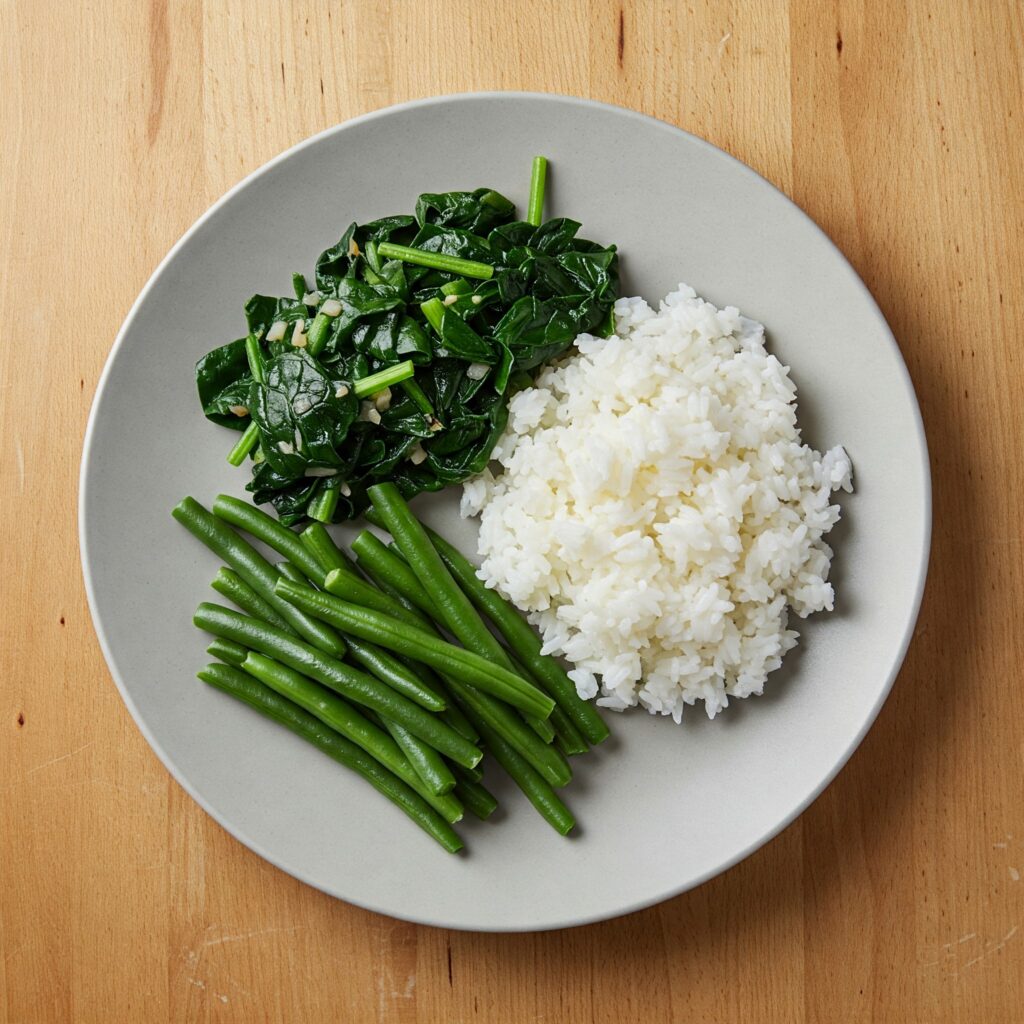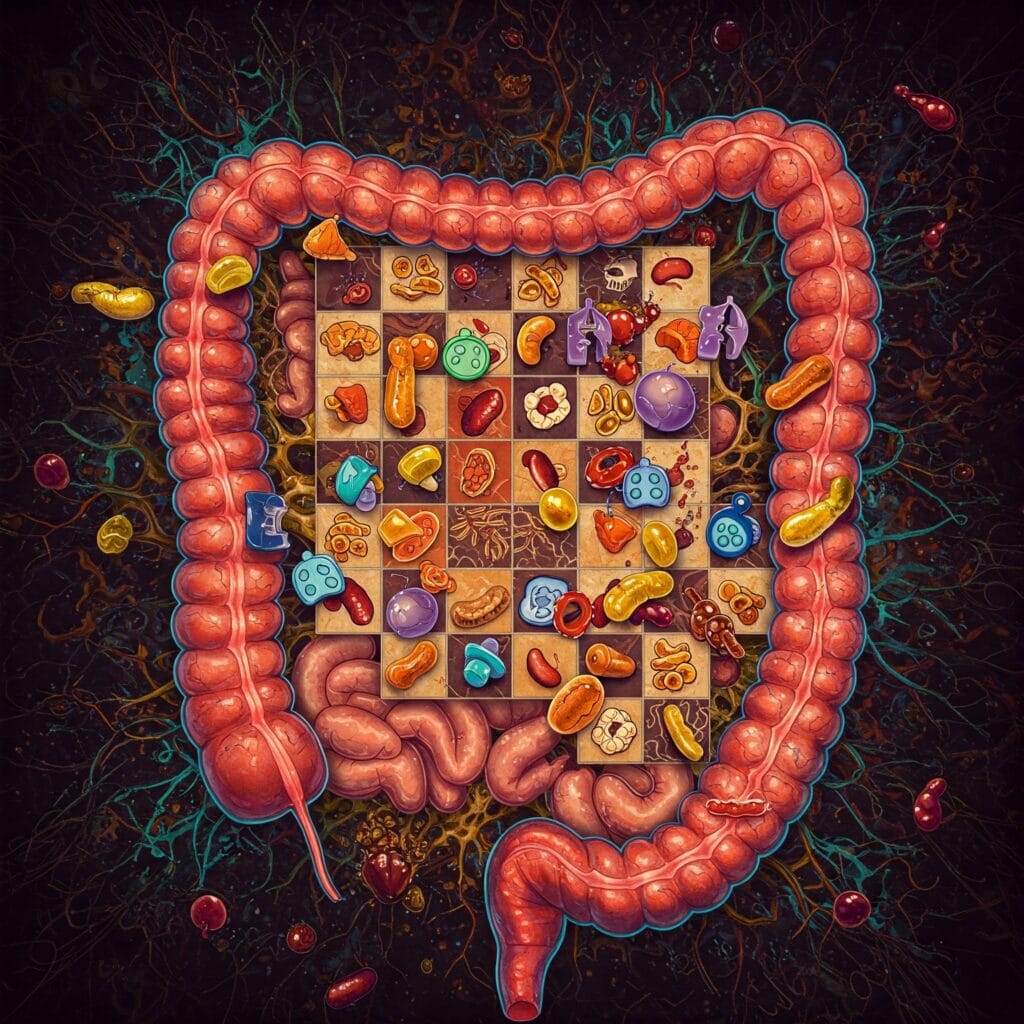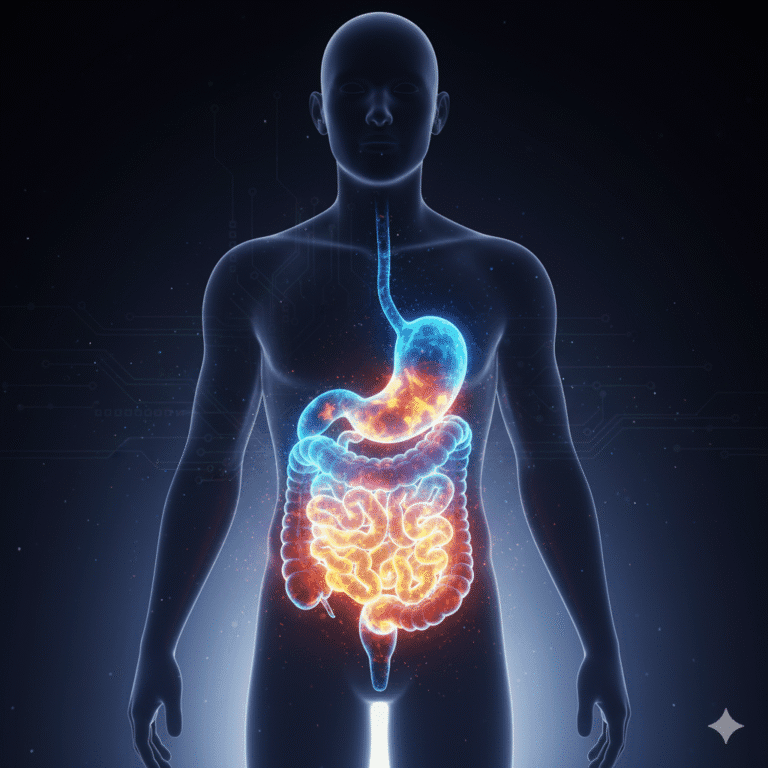Living with Crohn’s Disease—Lessons from My Life
Living with Crohn’s disease can feel like an endless fight against unpredictability—it’s exhausting, frustrating, and sometimes overwhelming. Your immune system’s misfires don’t just affect your body; they weigh heavily on your mind too. But here’s the silver lining: you don’t have to face it alone. With the right tools and practical Crohn’s Disease Advice, you can regain control of your life. This guide offers actionable Crohn’s disease advice to help you build resilience, manage symptoms, and thrive despite the challenges.

What Sets Crohn’s Disease Apart?
Exploring the Intricacies of Crohn’s Disease
Crohn’s disease isn’t your run-of-the-mill condition—it’s more like your immune system deciding to throw a tantrum at the dinner table, flipping plates while you’re just trying to eat. It affects about 1 in 1,500 people, mostly adults, and seems to pick on women a little more often.
Imagine your immune system as a vigilant guardian, but sometimes, it gets a bit too overzealous. Instead of targeting harmful invaders, it mistakenly attacks beneficial bacteria in our digestive tract. This relentless assault leads to inflammation and swelling in various parts of the digestive tract, from the mouth to the anus. It’s like a chaotic game of “Guess Who?” gone wrong, leaving our intestinal lining battered and inflamed. Trust me, it’s not a pleasant experience.
The Origins of Crohn’s Disease: A Brief History Lesson
In 1932, Dr. Burrill Bernard Crohn, an esteemed American gastroenterologist, made a groundbreaking discovery. He documented fourteen cases that shared similar clinical features, which he later coined as Crohn’s disease. His seminal paper, “Regional ileitis: a pathologic and clinical entity,” laid the foundation for our understanding of this condition. Dr. Crohn and his team worked tirelessly to make sense of this condition, laying the groundwork for modern treatments. Their efforts have been a lifeline for so many of us battling this disease.
Making Sense of Inflammatory Bowel Diseases
Understanding the Spectrum: Crohn’s Disease vs. Ulcerative Colitis
Crohn’s disease isn’t the only player in the inflammatory bowel disease arena; there’s also its counterpart, ulcerative colitis. Distinguishing between the two can be challenging, especially when symptoms overlap. If you’re experiencing abdominal pain, persistent diarrhoea, unexplained weight loss, or debilitating fatigue, it’s crucial to seek medical advice promptly.
Practical Advice and Empowerment
Gaining Knowledge and Building Strength
Living with Crohn’s disease isn’t a walk in the park, but with trusted Crohn’s disease advice, it’s far from insurmountable. By adopting a Crohn’s-friendly diet, stress-busting hobbies, and leaning on a circle of empathetic allies, you can tip the scales back in your favour. By leaning into effective tools—a Crohn’s-specific diet, activities that ease stress, and a strong support network—you can take control and thrive. Here’s what’s worked for me:
- Embrace a Crohn’s-Friendly Diet: While there’s no one-size-fits-all approach, opting for low-fibre, easily digestible foods can alleviate symptoms and reduce flare-ups.
- Prioritise Self-Care: Incorporate stress-reducing activities like yoga, meditation, or creative pursuits into your daily routine to promote emotional well-being.
- Stay Connected: Surround yourself with understanding friends, family members, and fellow warriors who offer empathy, encouragement, and practical support.
- Communicate Effectively: Openly discuss your needs and concerns with your healthcare team to tailor a treatment plan that aligns with your goals and preferences.
- Educate Yourself: Stay informed about the latest research, treatment options, and lifestyle strategies to empower yourself as an active participant in your healthcare journey.

Why Our Brains Struggle with Crohn’s (and How to Outsmart Them)
Dealing with Crohn’s isn’t just physical—it’s a mental chess match, and the right Crohn’s disease advice can help you win. Our brains are wired to catastrophize. For example, when you experience abdominal pain, your mind might spiral, wondering if it’s another flare-up, leading to stress that only makes things worse. It’s a cruel irony. By recognising this thought pattern, you can stop the spiral before it starts.

How? Keep a symptoms journal. Not only does it help you spot triggers, but it also reassures your overthinking brain with evidence. Pair this with small, daily wins—like prepping meals or scheduling downtime—and you’ll chip away at the mental toll Crohn’s can take.
Why Crohn’s Disease Challenges Your Mind as Much as Your Body
Crohn’s doesn’t stop at physical symptoms—it’s like an uninvited mental guest that thrives on stress and uncertainty. Your brain, wired to protect you, sometimes becomes its own worst enemy by overthinking every stomach twinge or flare-up. This mental drain can leave you feeling powerless, but there’s good news: small, actionable changes can make a huge difference.
Start with a simple strategy like tracking symptoms in a journal. It not only helps identify triggers but also gives your brain tangible proof that not every bad day is a disaster in the making. Pair this with mindfulness techniques or even short bursts of creative outlets like sketching or writing. These practices create a buffer between stress and your symptoms, giving you room to breathe and focus on living well.
Together, We Are Stronger: A Message of Hope and Solidarity
Living with Crohn’s disease is a journey fraught with challenges, but it’s also a testament to our resilience, courage, and camaraderie. Let’s continue to support each other, share our experiences, and advocate for greater awareness and understanding. Together, we can navigate through the uncertainties and emerge stronger, wiser, and more empowered than ever before.
Feel free to reach out with any questions or share your own experiences. Remember, you’re not alone in this journey—we’re in it together.
Frequently Asked Questions And Crohn’s Disease Advice
Keeping a food diary, managing stress with mindfulness, and building a support network are key strategies for improving daily life with Crohn’s.
While diet alone cannot cure Crohn’s disease, certain foods may trigger symptoms or exacerbate inflammation. Working with a healthcare professional or dietitian to identify trigger foods and adopt a Crohn’s-friendly diet can help manage symptoms and improve overall well-being.
Living with Crohn’s disease involves managing symptoms like abdominal pain, fatigue, and flare-ups, while adopting strategies to improve quality of life, such as dietary changes and stress management.
Yes, with proper treatment, lifestyle adjustments, and support, many people with Crohn’s lead fulfilling lives.
Foods high in fibre, dairy, and spicy ingredients often trigger symptoms. However, trigger foods vary, so tracking what works for you is essential.
There’s a genetic component, meaning it can run in families, but environmental and immune factors also play a role.
Stress doesn’t cause Crohn’s, but it can exacerbate symptoms. Incorporating relaxation techniques can help manage its impact.





